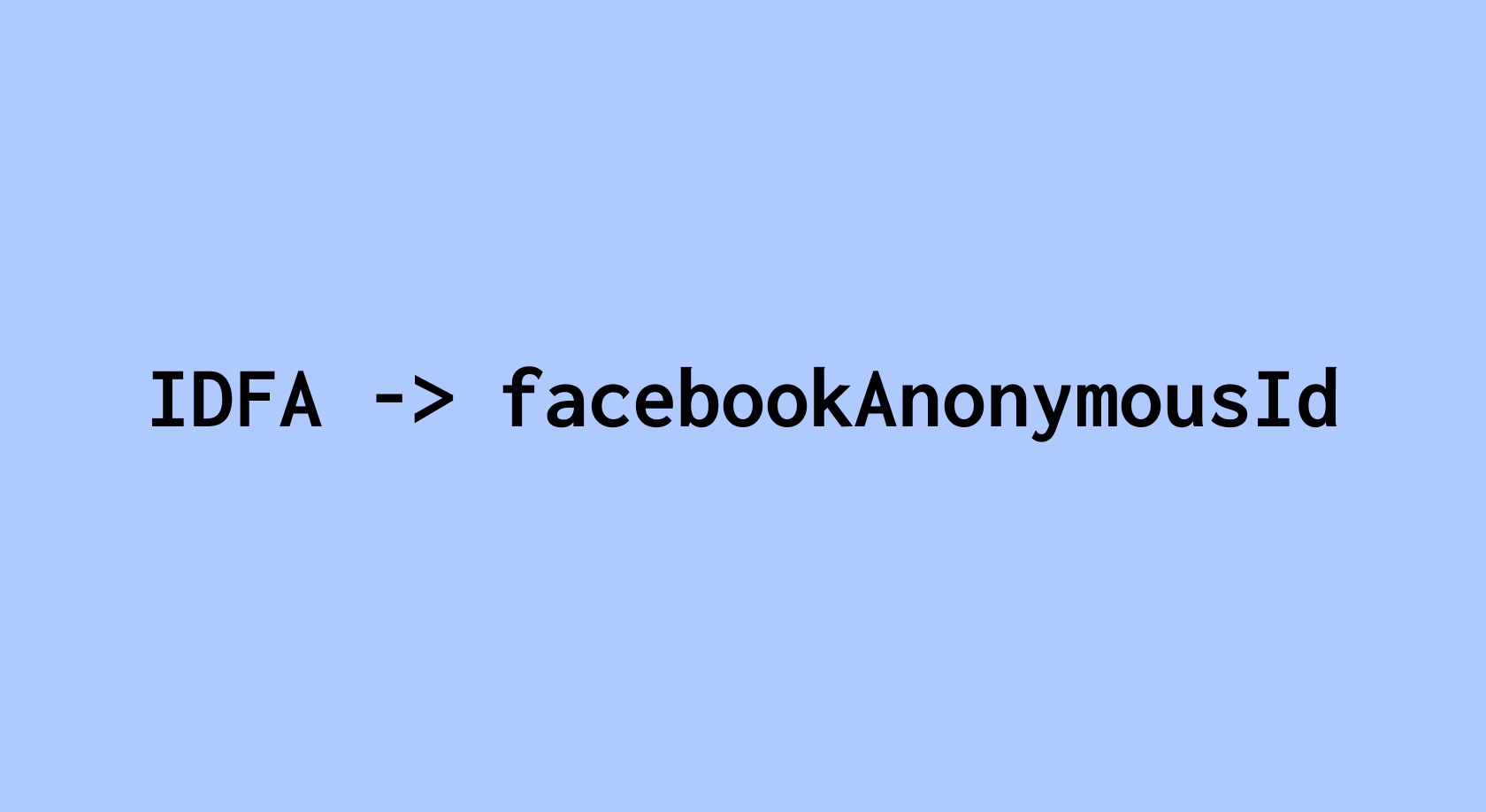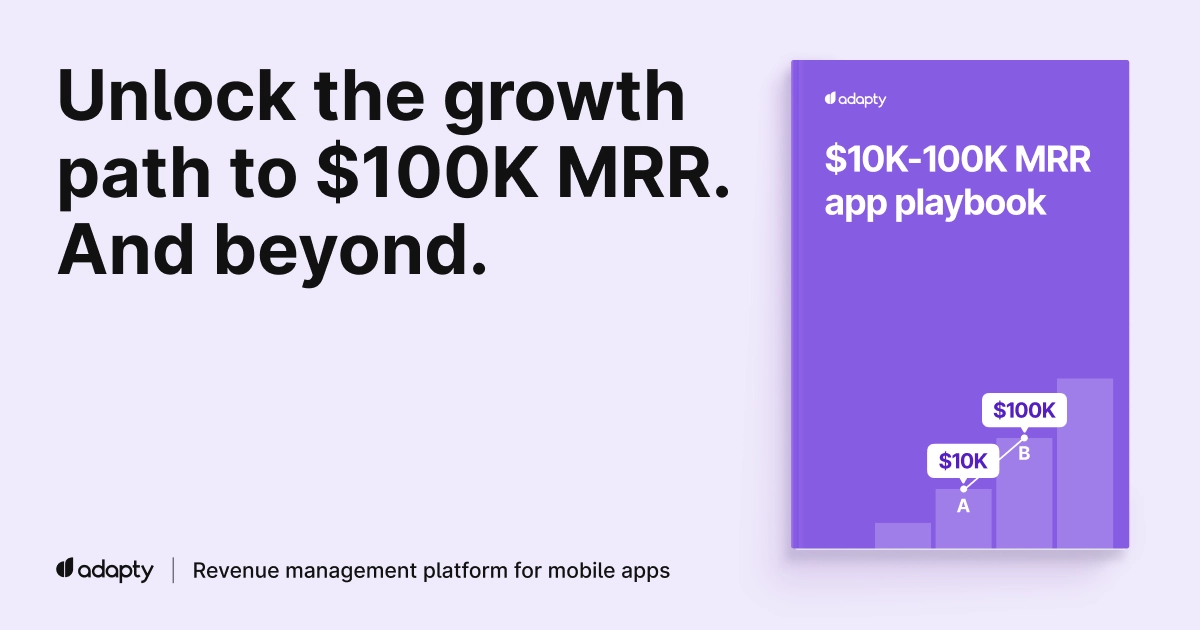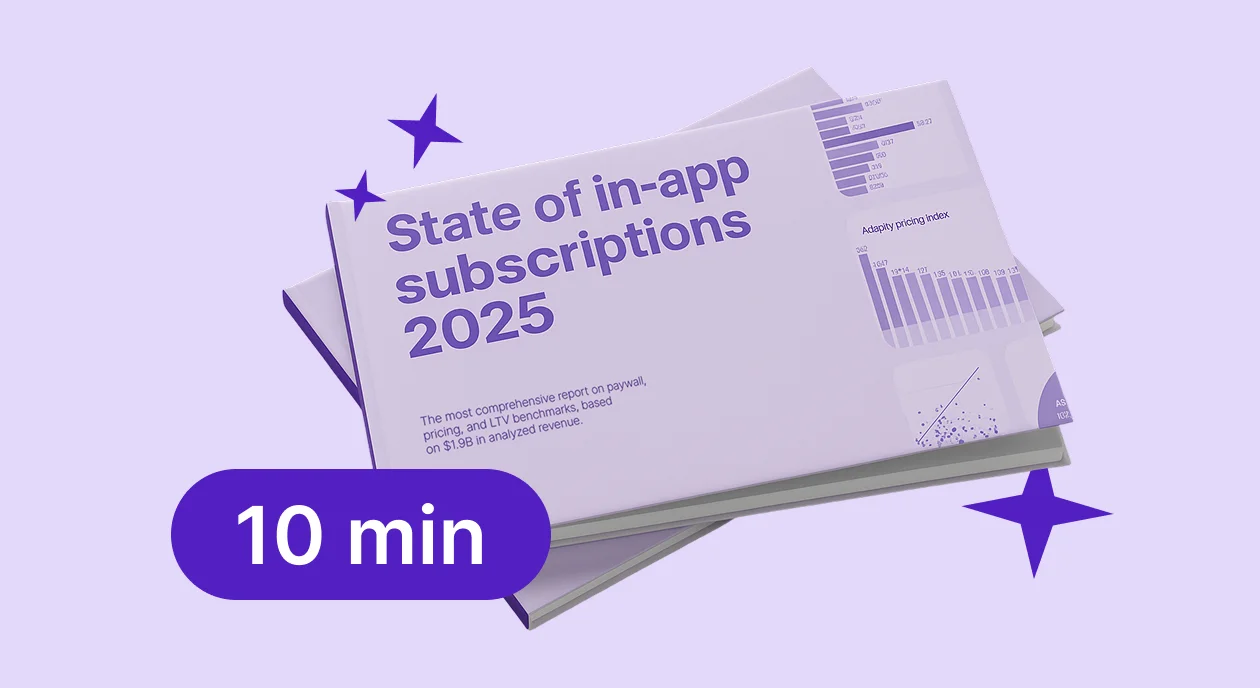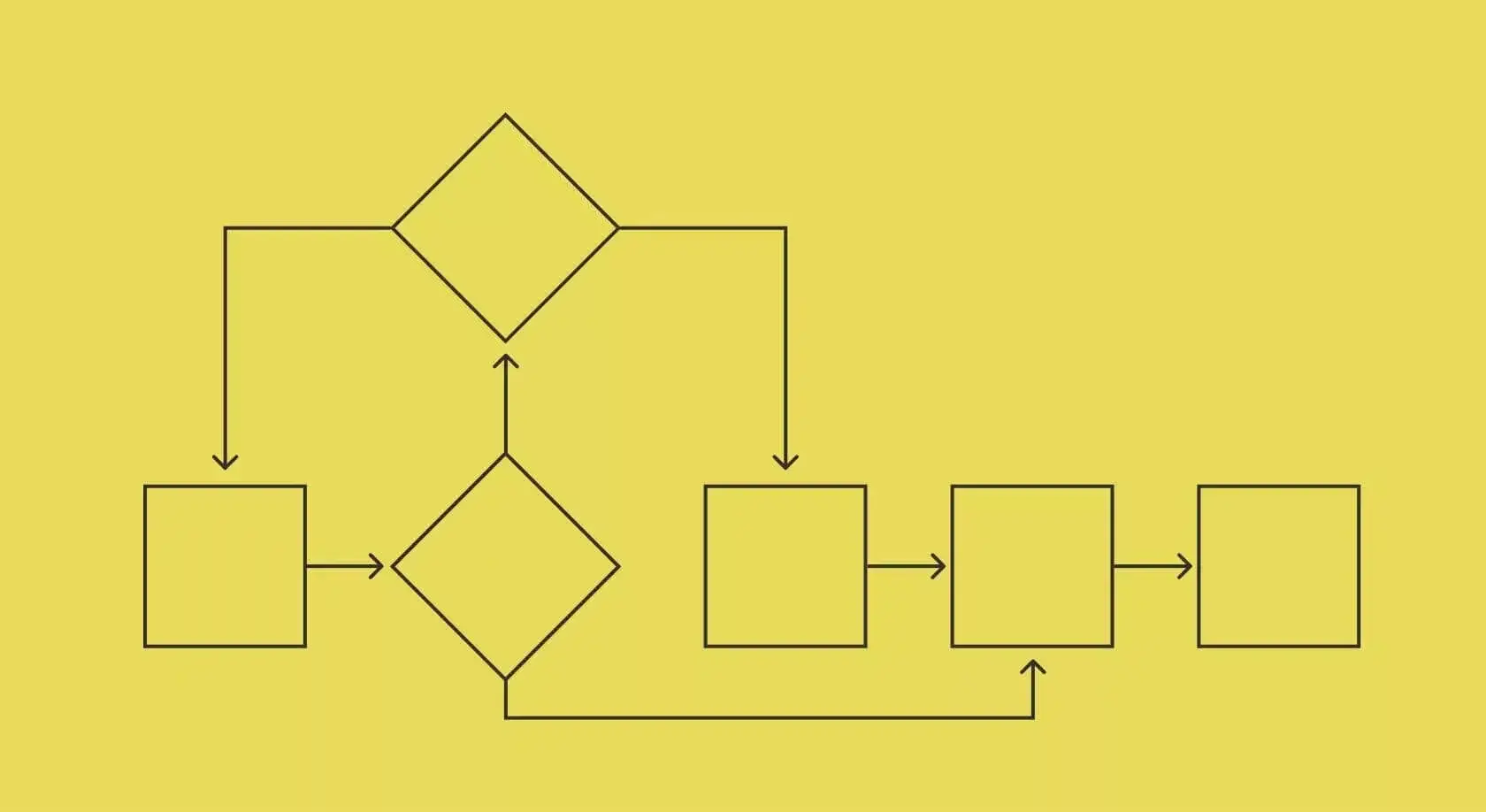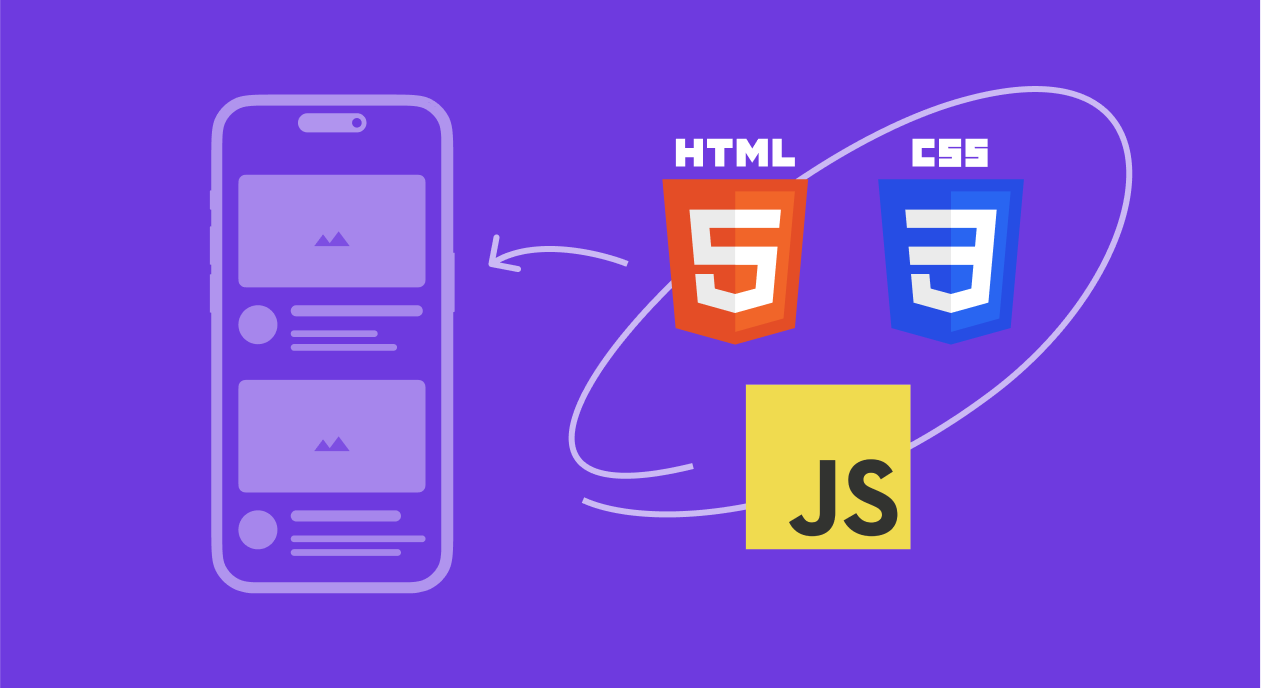TL;DR
You can’t. We’ve tried.
Hey there, my name is Dima; I’m the co-founder of Adapty. Like many in mobile marketing, our team is closely monitoring Apple’s move away from IDFA. We are looking for any workarounds that might allow app developers to keep mobile targeting effective.
The article below is one of the attempts to find such methods. We will briefly go over the importance of IDFA and try to find a replacement through the Facebook API.
Did anything change since WWDC 2020?
Last June, Apple announced that developers would soon lose access to IDFA by default and would be forced to request explicit opt-in consent from each user to access the user’s identifier. Since then, plans have changed slightly: the company postponed the shift to the beginning of 2021 while slightly changing the text and arrangement of buttons in the App Tracking Transparency prompt.
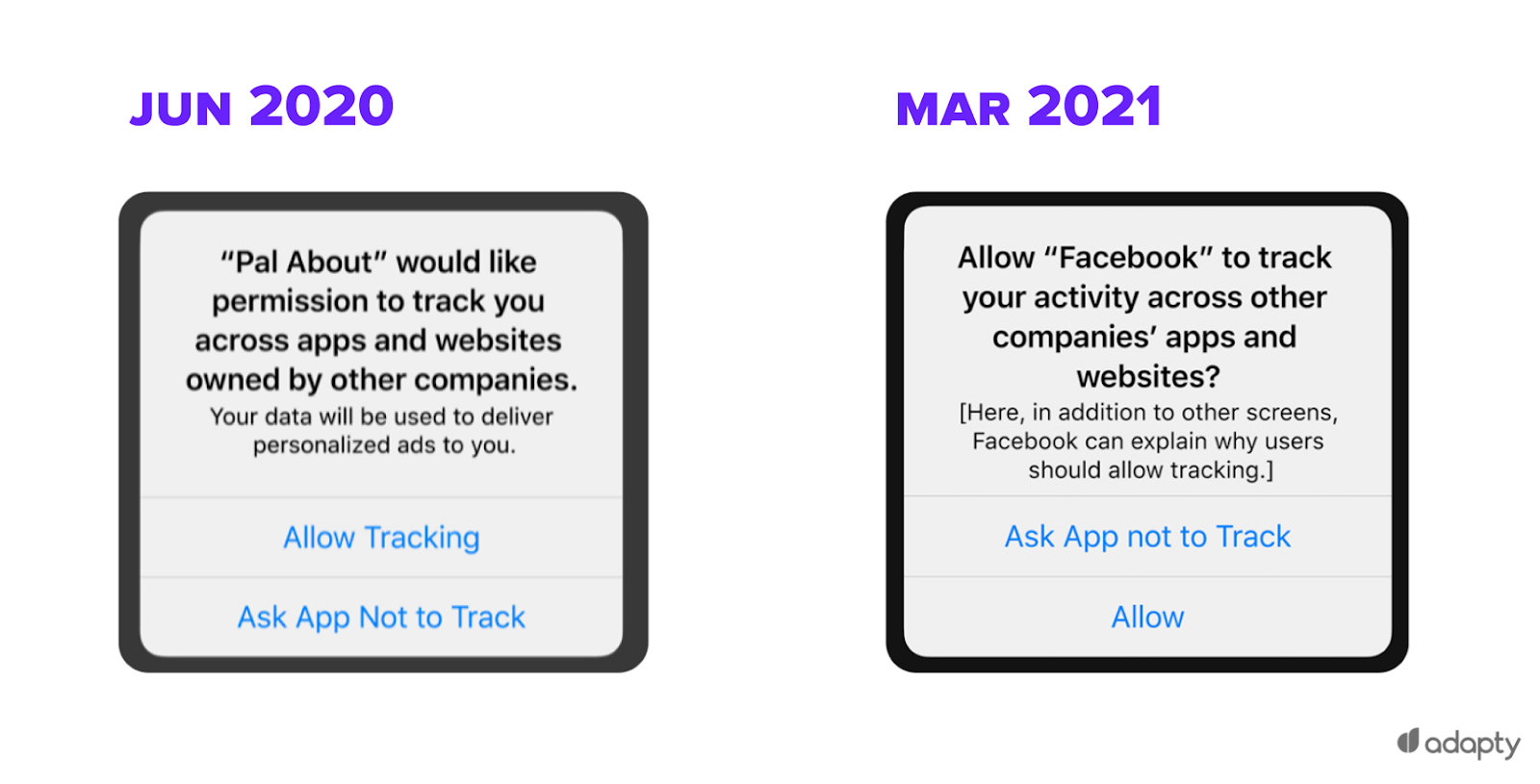
The tracking notification text has certainly become smoother but won’t significantly affect the initial expert forecasts, according to which 8/10 users will turn off tracking. In the summer, we looked in detail at how attribution took place before iOS 14, what will change now, and evaluated the tools that Apple offers to replace IDFA (spoiler alert: they don’t help much). Let’s go over the main points briefly.
IDFA: what, why, and how. In 4 paragraphs
Advertising on social networks and search engines are the primary source of sales for mobile apps. IDFA is a critical element of this system. Formally, this is a unique device identifier used for ad attribution, retargeting, look-a-like audiences, and other analytics tasks.
With IDFA, you can understand exactly how your campaigns and creatives work, make ads more personalized, and ultimately useful and cost-effective. Without IDFA, many ads will be shown to the wrong users, which will reduce the conversion to installs, trials, and purchases.
In return, Apple is offering advertisers and networks to use its own advertising platform SKAdNetwork. The topic itself is worthy of a separate article; for now, note that SKAdNetwork essentially makes (re)targeted advertising impossible by providing only aggregated data for general analysis.
Ad networks are not happy with this situation and are looking for possible workarounds. Unfortunately, there are no such solutions at the moment (or we aren’t aware of them yet).
Will anon_id help?
There is an opinion that such a work-around still exists, and Facebook is the one who offers it.
We’ve analyzed the Facebook API for tracking activities (including installations) in an attempt to find at least something that replaces the IDFA. You can notice anon_id (aka anonymoysID in the iOS Facebook SDK), which could possibly help solve the problems created by Apple’s move from IDFA. This assumption can be considered legitimate due to the excessive conciseness of the parameter description in the official Facebook API Application Activities documentation:

We can interpret such a description as follows: this ID can be used to identify precisely those users who have rejected tracking and opted for concealing their IDFAs.
How does anon_id work?
Let’s look at the anon_id function. To do this, let’s examine requests from several applications to the Facebook API.


We see that this anon_id varies by app. Moreover, if we reinstall the application, we will notice that anon_id is updated. That is, anon_id can only identify a specific installation and nothing more.
OK, so anon_id is entirely useless?
Not quite. If you have the IDFA, Facebook can track a reinstall. That’s it. Let us know if you’re aware of other user cases.
If you don’t have the IDFA, is there a way for anon_id to replace it?
No, there is no such way. A critical feature of IDFA is that it’s constant for a particular device. This allows linking of click on ads, app installs, and further conversion into trial/payment. As we found out earlier, anon_id doesn’t possess such characteristics.
OK, let’s sum up
- Apple softened the IDFA prompt design, but it is unlikely to help.
- Replacement or replacement hint is nowhere to be found in Facebook API.
- Anon_id isn’t like IDFA and isn’t exactly helpful.
With the release of iOS 14.5, the role of mobile attribution will drop dramatically. In this environment, the importance of A/B tests, both for prices and subscription periods, as well as targeted work with churn and conversion of freemium users, dramatically increases. With Adapty, you can use all of these tools (and more) for free for two weeks.
